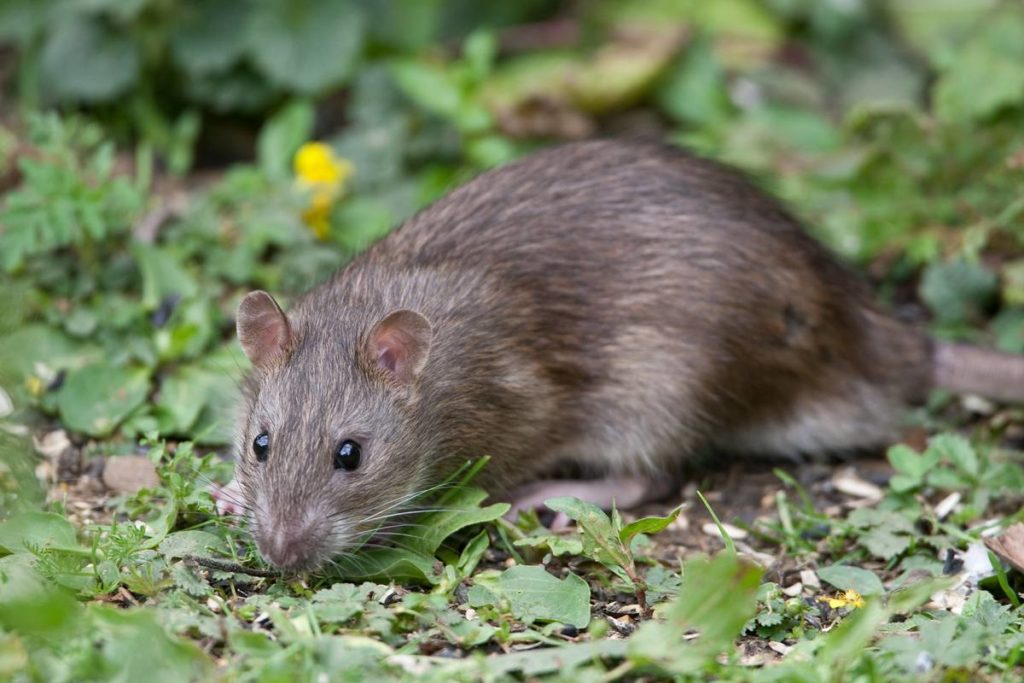An email from a reader about an article on the web site raises some ethical points about how we handle controlling vermin like rats. I’d be really interested in hearing what others think on this topic in the comments below.
I’ll paraphrase the email:
In your article on the problem of rats around chickens you mention the use of poisons to control rats and state <<< One old fashioned poison that is safe is cheap and easy to make yourself is to mix equal parts of corn meal and plaster of Paris and place it in the rat holes. The plaster of Paris hardens in the stomach of the rat causing death. >>>
I can’t think otherwise than that this is immensely cruel, as the animal will die slowly in agony. Many people hate rats enough that they don’t care about how they kill them, but rats are living creatures and as human beings surely we should be concerned for the welfare of all animals, including how they die?
I know rats have to be killed, for the reasons you quote, but please don’t use or recommend such a horrible way to do so. I’m not a do-gooder townie who doesn’t understand the problem – I am a smallholder for the past 23 years and was born and bred on a farm.
Also the mix could easily be eaten by poultry and other unintended creatures.
To address the last point first, about the poison being easily eaten by poultry and other unintended creatures. I do make the point that proper bait dispensers will make sure the rat will access the poison but not other animals.
Cruelty in Vermin Control
As a society we’ve a consensus that there should be constraints and controls on how we treat animals including how we deal with vermin. For example, we have banned traditional fox hunting with hounds.
Yet we still allow the hunting of rats with dogs. Having said that, a pack of terriers are an effective way to control a farm infestation and the rats are killed very quickly by the dogs. They’re not chased in terror for miles across country until they are caught as was the case with fox hunting.
Cruel poison?
In my opinion all the poisons available for rodents are going to cause significant suffering. They don’t just gently fall asleep and then pass on painlessly to rat heaven.
The most commonly used rat poisons are anticoagulants like warfarin which prevent the blood from clotting. The rat dies from internal bleeding over a period of time. This is neither pleasant nor painless and the animal will suffer for days.
There are many different rodenticides available but none of them are pleasant or painless either. Strychnine for example causes convulsions and is reputedly a very unpleasant poison. Nitrophenols cause fever and brain swelling.
So I agree the use of plaster of Paris as a poison is not a nice way to kill rats, but I don’t think we can say it is particularly worse than other poisons. I don’t know that there has been a study of lethal poison pain – except we know that ingesting cyanide (as in the suicide pill taken by Hitler) was very fast. But how painful many lethal poisons are, nobody alive knows.
Threat to Rat Predators and Wildlife – Secondary Poisoning
A poisoned rat will be more likely to be caught by a predator like a fox, dog, cat or buzzard. Even chickens will have a go if the rat is so enfeebled as to not be a threat. Once dead, the carcase could be eaten by rooks and crows or any of the predators who are partial to carrion. This is called secondary poisoning.
Once eaten, the poison passes to the predator and kills that. I have friends who have lost pets due to secondary poisoning. Plaster of Paris does not cause secondary poisoning.
There are poisons such as powdered corn cob and corn meal gluten that avoid the secondary poisoning problem but these cause death by dehydration – perhaps more humane than warfarin or plaster of Paris but I wouldn’t bet on it.
My Personal View on Rat Poison
Nature is often cruel – I feel pity for rodents and rabbits caught by predators, but that is nature’s way. My chickens and my cats are pets that I don’t want to put at risk but as the cats effectively control the rodent population I don’t need to use poison or any other control method.
I actually think rats are quite cute and have a place in the ecosystem but once they over-breed and become a problem they have to be controlled. Poisons are one of the most effective ways to control them – some would argue the only practical solution in most cases. But the effective poisons are not humane.
The old plaster of Paris poison isn’t humane but neither are the other poison options. At least it removes the possibility of secondary poisoning when used with care.



I and my daughter use a mixture of either peanut butter and bi carbonate of soda mixed well together or just chicken pellets and bi carbonate of soda. The mixtures are placed in the middle of a round gutter pipe 12 inches or so long stopping the rain spoiling it. Placing the pipe on a rat run. When eaten the bi carb forms gas very quickly in the guts of the rat and causes it to internally explode. Death is very quick 15 to 20 minutes. No poison residues for other predators. Rats cannot regurgitate food. I have used this method and it gets rid of rats very quickly.
I’d not come across that method – thank you.
At a recent flower show I asked a respected groundsman/ poultry keeper he recommended the very strong snap jaw rat traps death is instant, just have to be careful setting it up and ensure other wildlife can’t get in.
Poison is indescriminate what’s to stop hedgehogs eating it?
I’ve just invested in a good treadle feeder for the girls. No food waste no rats! Here’s hoping.
Michele – what’s to stop hedgehogs setting off the trap?
We have had rat problems in the past. They were trying to move in to the run (where we also have their coop) despite the run being set into a low stone wall and chicken wire going at least 30 cm underground. I used the expanding foam that is used to fill holes in walls etc to block up the holes they were digging between the stones in the wall. I set the snap jaw rat traps screwed to a wood plank so that I could bait with peanut butter then push under the summerhouse adjacent to the run (this is where I thought they came from). I covered the gap with wood so that the chooks or our dog couldn’t get to it. This proved a very successful way without the need to use poison bait. Over several days I caught a rat every day, disposed of and since then (touching wood) it is now only the odd mouse that is trapped after trying to get into the feed store. I did try the humane trap but without success.
As I understand, rats are not a health problem unless you are in stagnant water where they have urinated – I tend not to do that :-). We need our wildlife – best not to kill one over another.
Karen – I quite like rats as I say above but it isn’t just the problem of passing on Weil’s disease (see Rats in the Compost Heap & Weil’s Disease Safety Concerns)
They foul the feed with droppings, if they get into the coop they go for the eggs and they can damage the hens in their sleep.
for what its worth, a Portuguese friend of mine says that his parents keep guinea pigs in with the chickens. They cohabit well and usually will not tolerate a rat, which generally solves the problem.
And, of course, you now have guinea pigs for the table.
Rats where I live cause a lot of damage. I’ve fixed dozens of pex waterlines and house fires are at time caused by rats chewing on electrical wires, I tend to use traps because poison and secondary predators getting poisoned concerned me